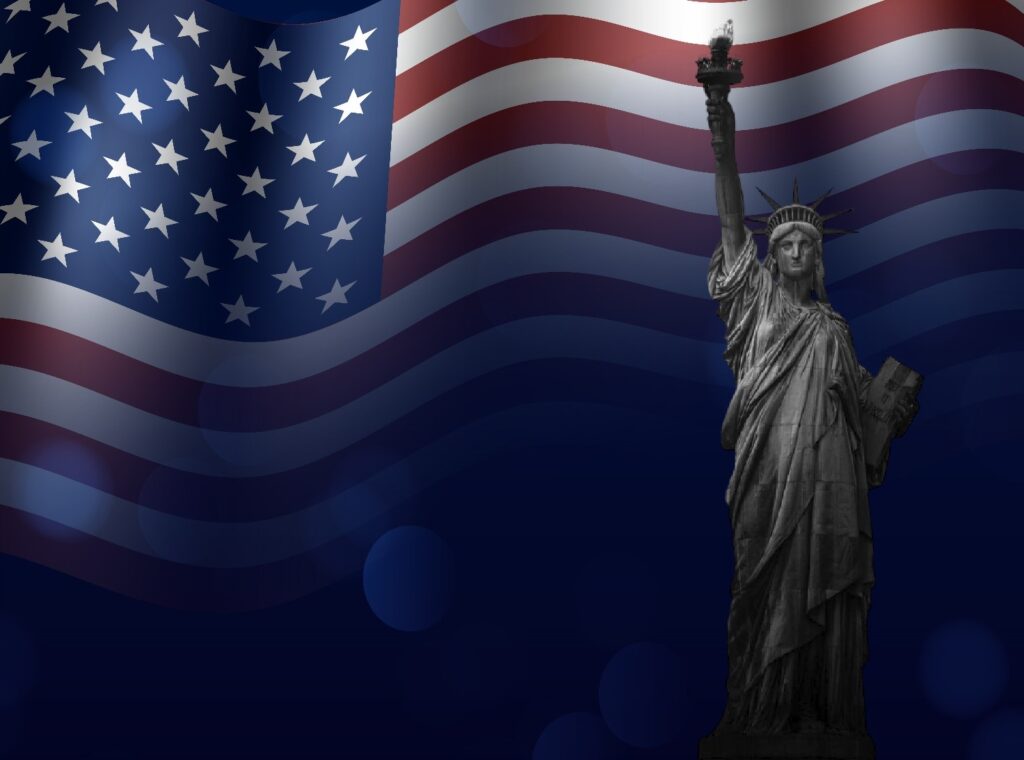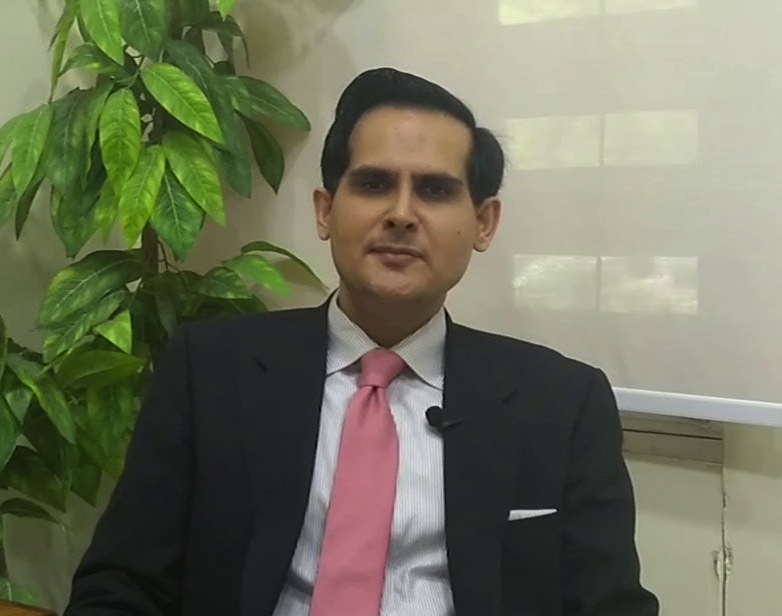

By Ilhan Niaz, author of The State during the British Raj: Imperial Governance in South Asia, 1700-1947 (OUP, 2019). He is currently working on his next book, New World Empires: Cultures of Power and Governance in the Americas.
07 January 2021
Pakistanis are used to living in a constitutionally unstable nuclear armed republic besieged by rightwing extremists that reject scientific authority and the verdicts of inconvenient political and legal processes and who, for good measure, obstruct efforts to eradicate polio or follow COVID19 protocols. In many countries it is also quite normal for those who lose an election to refuse to accept the legitimacy of the outcome no matter the evidence. This makes for the politics of perpetual crisis wherein the government’s energies are consumed by the need to ensure survival, with completion of a tenure becoming the primary metric of political success. What is interesting about the trajectory of politics in the United States is that it has become more like troubled developing countries in which sizeable minorities and powerful interest groups openly reject the epistemological basis for modern liberal democracy. There is a good chance that if the incoming Biden-Harris administration does not take these elements head on a far more sophisticated and deadly version of racist-plutocratic leadership will emerge in 2024. The trouble is that racism and plutocracy are more integral to the American political tradition and culture of power than the socially progressive liberalism that a majority of Americans actually aspire to.
The first problem, in this regard, is that the American political vocabulary, with its reverence for the founders, identifies the United States as a democracy. In actual fact, the founders never conceived of the United States as a democracy. They conceived of the United States as a republic that would accord representation to property owning white men who would choose from their ranks a reliable government that would limit the ability of the state to interfere with the accumulation of private wealth and the abuses of private power. In other words, the United States was, and is, a constitutional plutocracy, within which the highest offices of the land could peacefully rotate amongst different factions of wealthy white elites. The American people have, through struggle and enormous suffering, won grudging concessions in favour of a more democratic polity, but this has happened in spite of, not because of, the founders’ vision and the design of the American system.
This system was for most of its existence fundamentally incapable of addressing underlying injustices and inequities arising from its plutocratic and racist nature. Thus, when the movement for the abolition of slavery gathered momentum and secured mass support in large parts of the country the result was a bloody civil war that killed 2% of the total population, followed by a brief period of reform that soon gave way to a long period of racist repression that only formally ended in the mid-1960s. In the meanwhile, all sorts of policies were devised to keep African Americans down, from segregation, red lining of urban areas, to public lynching, to mass incarceration for petty offences. Consequently, the share of national wealth held by African Americans has grown from only 0.5% in 1865 to 1.5% today – against a population share of about 13%. On the other hand, African Americans are about 39% of the Federal prison population. This inequality is as prevalent in liberal coastal cities as it is in the rural hinterland, indicating that continuously reinvigorated systemic racism, not the historical legacy of slavery in some parts of the country, lie at the heart of the racial wealth gap. Thus, in Boston, White families have a median net worth of $247,500, while for African Americans the same figure is close to zero even though, since 1930 the Democrats have governed the city almost uninterrupted.
At present, one side of the elite, represented by the Republicans, is openly returning to the White nationalism of America’s past and, fearing demographic change, is no longer willing to accept the legitimacy of election results if it loses. Biden and Harris have every right to be proud that over 80 million Americans voted for them, but it is a testament to the strength of racism and plutocratic media projection that Trump got close to 75 million votes and drove up his base’s turnout amidst a raging pandemic and economic catastrophe the incumbent has made worse through mismanagement and denialism. That on 2 out of 3 occasions since 2000 the Republicans have won the White House while losing the popular vote has only proven to them that they can capture power and then rule as an empowered minority.
The second problem is that the plutocratic element in American society is stronger today than at any time since the late-1800s. A handful of billionaires own more wealth than the majority of Americans, while the average worker hasn’t had a real wage increase in 40 years and is exposed to maximum risk in the gig economy. The irony is that the ‘American Dream’ of upwards mobility and a decent middle-class life were produced by the anti-capitalist reaction of 1933-45, led by Franklin Roosevelt and the New Deal, in response to the Great Depression wrought by the free market. This reaction carried on, with diminishing intensity in the post-war generation (1945-1970), but, as memories of the Great Depression faded, general prosperity came to be accepted as ‘normal’ (as opposed to delivered by state intervention), and fears of the communist world overtaking the West diminished, the plutocratic spirit of America reasserted itself. Rebranded as neoliberalism and Reaganomics, its fundamental idea, that government is nearly always the problem and free enterprise is nearly always the solution, rapidly captured the right, the centre, and even important parts of the mainstream left. Not even the horrors of COVID19 and economic collapse were able to move the Democrats to embrace genuine reformers, like Bernie Sanders. The Republicans, for their part, are trying to hold the Democrats to ransom by delaying extension of relief measures in order to immunise companies against financial liability for workers who contract COVID19 while on the job.
The third problem is that Republicans are set to dominate electoral redistricting come 2021, have secured control of the Supreme Court and many federal courts for at least a generation, and are remarkably competitive in the US Senate, which is another one of those anti-majoritarian institutions devised by the founders to check the will of the people. The Republicans have raised the fiscal deficit and national debt through tax cuts for the rich and are well-placed to switch to a narrative of balanced budgeting to rein in the White House if it chooses to move on a redistributive agenda accompanied by heavier spending. In this the Republicans can rely on ‘socially liberal’ but ‘fiscally conservative’ Democrats who share their reverence for private wealth. The Biden-Harris administration is going to go up against a ferocious and well-organised resistance that doesn’t even accord it the minimum decency of acceptance of the 2020 electoral verdict. Biden’s own instinct to employ the healing touch, reach out across the aisle, and take upon himself a ‘duty of care’ for all Americans will play right into Republican hands. Indeed, it appears that ‘moderate’ Democrats fear their own left-wing more than they do the Republicans. Such Democrats are fine with social policy and laws that help people, just so long as they do not hurt the super-rich – which was the path followed by Barrack Obama.
The legitimacy of an election outcome depends on the loser accepting the fairness of the process and conceding the results. Biden did win the election and there was no systemic fraud, but this doesn’t matter because, at a narrative building level the Republican leadership is unwilling to concede. Biden will thus be a usurper in the eyes of tens of millions of Americans and the right-wing media will do everything to propagate this false notion. In the meantime, the monied interests within the United States are at the peak of their power and have very little to fear from Biden, Harris, or the Obama reloaded team of executives and advisers they are assembling to help them govern. Under these circumstances the likely scenario is that of chronic instability amidst failure to address underlying problems, while the worst case is that of civil war or a return through formally legal means to an overtly racist political order. The key variable in this will be whether Biden can overcome his propensity to be reasonable and, like Lincoln on slavery, FDR on the New Deal, or Lyndon Johnson on the Great Society and Civil Rights, decide to take the innate racism and plutocracy of the American state head on, accepting the consequences whatever they may be. Such an approach might well plunge the United States into a sharp crisis in the short-term but offer, in exchange, a greater chance for genuine reform.
Disclaimer: The views expressed in the article are of the author and do not necessarily represent the institute’s policy.
